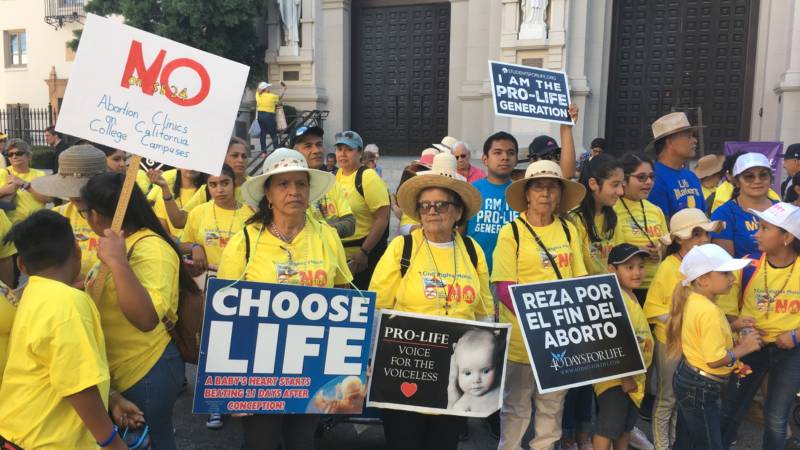Insurers are already required to cover abortion under California law, and state tax dollars do go toward abortions provided through Medi-Cal, the state version of Medicaid for low-income patients. However, none of the UC campuses and only some of the CSU campuses get reimbursed for health services through Medi-Cal. University officials testified during legislative hearings on the bill last year that it could be an administrative or fiscal burden to establish billing systems to provide the abortion pill on campus. They predicted that some clinical costs, as well as security and liability costs, could fall directly to the universities and get passed on to students.
Up to 519 women at public universities seek a medication abortion every month in California, according to a study published last summer in the Journal of Adolescent Health.
The same research found that off-campus abortion providers were an average of six miles away from public university campuses in California.
Former Gov. Jerry Brown cited this stat when he vetoed a version of the same bill (SB 320) last year, saying the legislation was not necessary.
“Six miles away — that’s like a $5 Uber ride,” said abortion opponent Nick Reynosa, the Northern California regional coordinator for Students for Life of America.
He says the campaign is more about politics than need.
“Over the last decade, many pro-choice activists feel that in red states, there’s been a lot of momentum toward more abortion restrictions. This is a way to say, ‘No. Here, in blue California, we’re going to affirm or expand [the right to an abortion],’ ” Reynosa says.
The bill’s supporters don’t deny it. Phoebe Abramowitz was part of the student team that launched the campus campaign for medication abortions at UC Berkeley four years ago.
“Now that we’re doing statewide advocacy, we’re hoping to set a national precedent that we can, even in these really hostile times to women and queer people, move access to abortion forward,” she says. “It’s more important now than it even was a year ago.”
When Brown vetoed the bill last year, then-gubernatorial candidate Gavin Newsom said he would have supported it. He won the election about a month later, and advocates are optimistic that he will side with them this time around.
The state Legislature has until mid-September to pass the bill, and the governor has a month after that to sign or veto it.
This story is part of NPR’s reporting partnership with KQED and Kaiser Health News.


